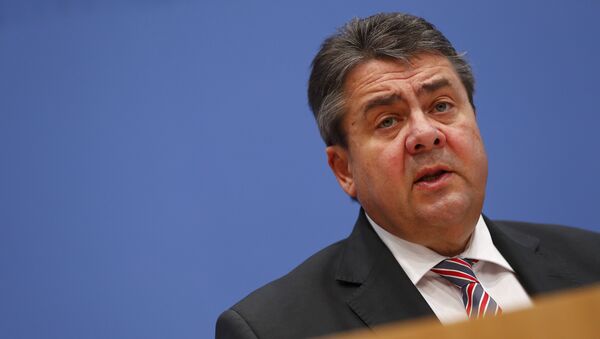On the day the Eurogroup of the euro single currency area meet to discuss the latest situation with the Greek bailout program, the issue has entered into the German election campaign — ahead of the poll, September 24.
Gabriel is vice chancellor of Germany and is a member of the Social Democratic Party of Germany (SPD) which us in coalition with Chancellor Angela Merkel's Christian Democrats (CDU). However, the SPD has put up former European Parliament President Martin Schulz to stand against her in the forthcoming election.
#Austria FinMin Schelling: #IMF should not block #Greece next tranche payment.#Eurogroup
— Yannis Koutsomitis (@YanniKouts) 22 May 2017
Merkel's Finance Minister Wolfgang Schauble (CDU), however, has long been a proponent of Greek austerity, refusing to release more loans to Greece without the intervention of the International Monetary Fund (IMF) which is not part of the third bailout.
"Greece has always been promised debt relief when its reforms are implemented. Now we must stand by that promise," Gabriel told reporters.
Election Agenda
The issue of Greek debt relief is a sensitive one in Germany, where most people believe that Greece was allowed for too long to maintain an unachievable state pension system with an overgenerous tax system.
NEW | #DebtRelief or a fourth financial assistance programme for #Greece? A new OP-ED by @ZsoltDarvas https://t.co/VCqHgN85DR #eurogroup pic.twitter.com/Ig4JgrNHSB
— Bruegel (@Bruegel_org) 22 May 2017
The fact that the German vice chancellor — representing a party which is standing against Merkel — is demanding debt relief for Greece in the face of opposition from her own finance minister is a sign that the issue has climbed the election agenda.
Greece has been given tough targets to reach in order to qualify for each stage of the bailout deal — its third since the sovereign debt crisis of 2007/8 — which calls for tough cuts in public spending, raising tax income and major reforms of its over-generous state pension scheme.
Under the terms of the agreement, Greece has got to keep a 3.5 percent of GDP budget surplus before debt servicing costs over several years starting in 2018, according to Reuters.
Many within the EU believe Greece will also keep the 3.5 percent surplus in 2019, but the IMF is divided over the issue. According to the latest assessment of the Greek bailout, the board of the IMF is split over the targets.
The IMF said it " welcomed the progress on the policy package that's centered around reforms allowing fiscal policy to become more growth friendly".
"However, Paul Thomsen, the Director of our European department, did note last week that this will have to go hand in hand with a credible strategy to restore debt sustainability. And the discussion in this regard is only just getting underway," an IMF spokesman said, May 11.



